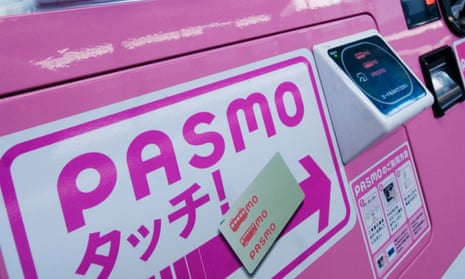Japan is running out of credit card numbers amid a surge in online shopping during the coronavirus pandemic.
The country’s credit card companies are struggling to come up with original 16-digit numbers as consumers eschew regular shop visits and opt for plastic over hard cash, the Mainichi Shimbun newspaper reported.
The rise in credit card use has also been linked to a government campaign to encourage cashless payments with a point system introduced last October after the consumption (sales) tax rose from 8% to 10%.
Most of Japan’s 280 credit card companies issue cards with 16 digits so they can partner with international firms such as Visa and Mastercard.
While the first six digits denote the country, brand and other information, the remaining 10, which include the account number and type of account, are decided by the credit card issuer.
Credit card companies have warned that the boost in card issuances will result in a shortage of combinations from the seventh-digit onwards, the newspaper said.
While credit card usage in Japan rises by about 2% a year, it received a further boost in the first half of this year after people were encouraged to stay at home in an attempt to contain the Covid-19 outbreak.
Credit card use is expected to continue rising as Japan attempts to end its addiction to cash, with many consumers, especially older people, happy to carry around large quantities of notes.
The prime minister, Shinzo Abe, wants to double the ratio of cashless payments to 40% by 2025, and eventually to 80%.
Despite the growth in electronic payments, 84% of households uses notes and coins for small purchases, according to a 2019 survey. For payments of over 10,000 yen [72 GBP] and up to 50,000 yen, 48.5% said they paid in cash, with only 3.4% preferring electronic money, including credit and debit cards.
Japan’s ratio of cashless transactions stands at around 20%, well below South Korea at more than 96% and China at 66%, according to the Payments Japan Association, an industry lobby group.
The most obvious solution to the combination conundrum would be to add an extra digit to credit card numbers, but the reform, which would involve advance trials to prevent forgery, could leave the industry with a bill running into billions of yen that it is reluctant to pass on to consumers.
“Although we want to do everything possible to avoid increasing the number of digits, I think that ultimately, our only choice is to carry the financial burden ourselves,” a credit card company executive told the Mainichi.
Even if credit card firms agree that an additional digit is the best solution, they will have to decide whether to update almost 300 million 16-digit cards already in circulation or allow them to co-exist with new cards, the paper said.
